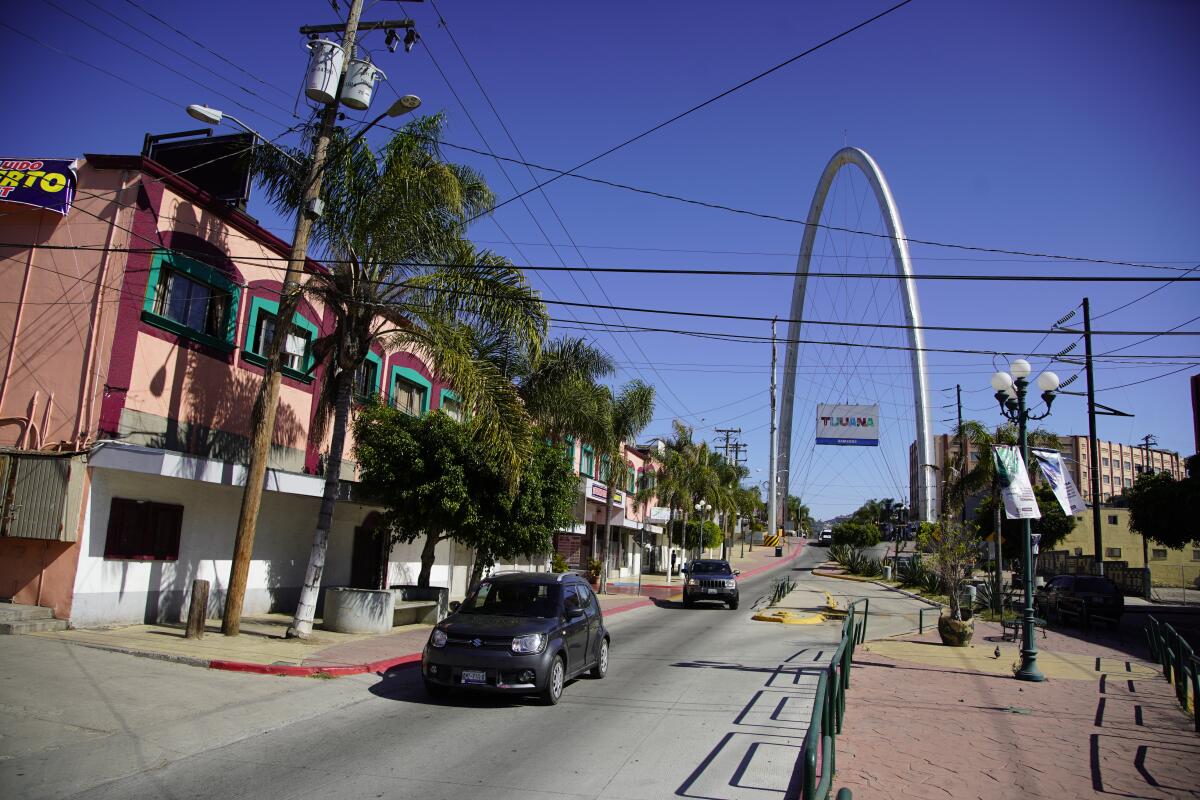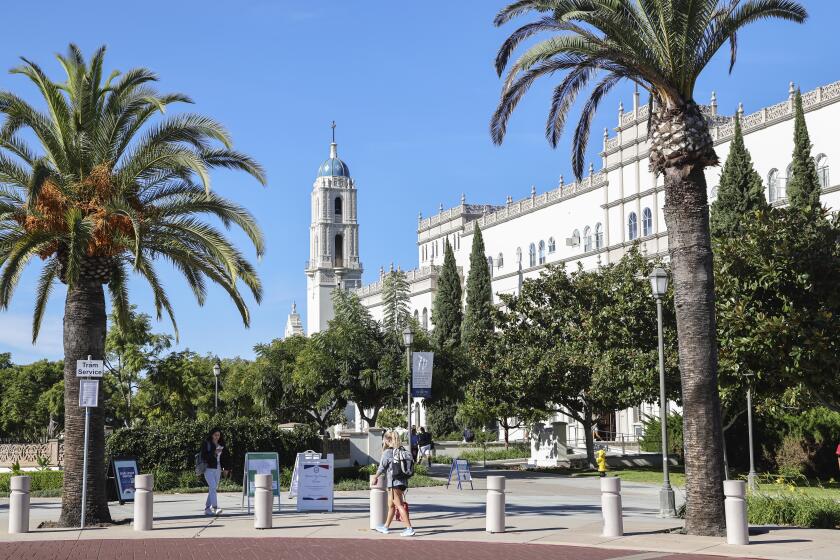Opinion: When San Diegans move to Tijuana, it has implications on both sides of the border

Mcenany is a first-year student at Columbia University majoring in sociology and concentrating in education studies. He used to live in Tijuana and is currently living in Manhattan.
When I was 14 years old, my mom told me we were moving to Southern California. She quit her job, packed our belongings and drove from Mesa, Arizona, to sunny San Diego. We were going to live with a friend, but things fell through. My mom realized she couldn’t afford a place to live in San Diego, and we ended up moving to Tijuana, Mexico.
While we lived in Tijuana, our lives still revolved around the other side of the border. My brother and I attended school, while my mom labored as a maid and a retail worker during the day. In the evening, we would drive back across the border to Tijuana. We spent an average of five hours a day commuting, waking up at 4 a.m. most days to avoid traffic at the border.
We provide this platform for community commentary free of charge. Thank you to all the Union-Tribune subscribers whose support makes our journalism possible. If you are not a subscriber, please consider becoming one today.
My experience at the border is not unique; thousands of people cross the border everyday to get to work and school. News articles are constantly written about the binational communities in San Diego and Tijuana and how the spread of COVID-19 has affected the region. But these articles rarely delve into the reason why people commute across the border.
California has a housing crisis, and San Diego is no different; however, when we talk about who is affected by this crisis, it’s common for the conversation to center around extreme cases. By limiting California’s housing crisis to those on the streets, it simplifies all the different ways this crisis has manifested in people’s lives. It omits discussions of overburdened shelters, people who are couch surfing, and how astronomical rent is forcing people to live paycheck to paycheck. This problem is even more complicated in San Diego due to its geopolitical situation at the border, which is forcing some people to move to Tijuana to make ends meet.
This has many implications, not only for the people who have to move to Tijuana, but also for communities on both sides of the border. In Tijuana, this influx of people from San Diego could exacerbate inequities within the city and gentrify neighborhoods. In San Diego, having thousands of additional people commute across the border to get to school and work makes the herculean task of meeting the legally binding goals set in the 2015 Climate Action Plan much harder.
This exodus from San Diego places numerous challenges upon the people who move to Tijuana. Beyond the commute, which by itself has the potential to create health problems, interacting with Customs and Border Protection (CBP) agents can cause stress. Last summer, ProPublica revealed a racist, misogynistic Facebook group that had thousands of CBP agents as members. Reading their derogatory posts reminded me of the time when one of my peers was on the verge of tears; a CBP agent made fun of her accent, joking about deporting her. This is only one story, but it’s emblematic of the xenophobic experiences with CBP agents that people can go through when crossing the border.
This past election cycle proved that a majority of San Diegans want more affordable housing. Measure A — a citywide referendum that authorized $900 million to be spent on constructing affordable housing — and Measure C — a citywide referendum which aimed to raise taxes on overnight lodging guests to fund programs reducing homelessness among other initiatives — were both on the ballot. Both measures got majority support, 58 percent and 65 percent respectively; however, because of a byzantine California tax law requiring a two-thirds majority, neither measure passed.
In any other election, these results would be considered overwhelming and a public mandate, but in these instances they were deemed failures. Expansive affordable housing projects and funding programs to reduce homelessness are popular among constituents. Local politicians need to act on the will of voters, not only to help people who are homeless and suffer from housing insecurity, but also to reverse the tide of people leaving San Diego in order to survive.
San Diego is a city that prides itself on its modernity and inclusivity, but both qualities require bold, empathetic leadership. The local government’s unwillingness to discard detrimental housing policies has allowed homelessness and housing insecurity to escalate into a regional epidemic, one that’s beginning to impact communities across the border. People in San Diego deserve the right to live in the same country they work. When public servants don’t advocate for expansive affordable housing projects, people are denied this right.
Get Weekend Opinion on Sundays and Reader Opinion on Mondays
Editorials, commentary and more delivered Sunday morning, and Reader Reaction on Mondays.
You may occasionally receive promotional content from the San Diego Union-Tribune.






